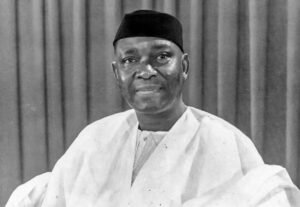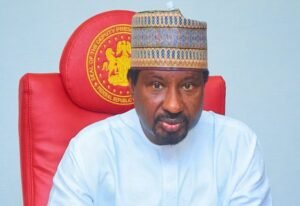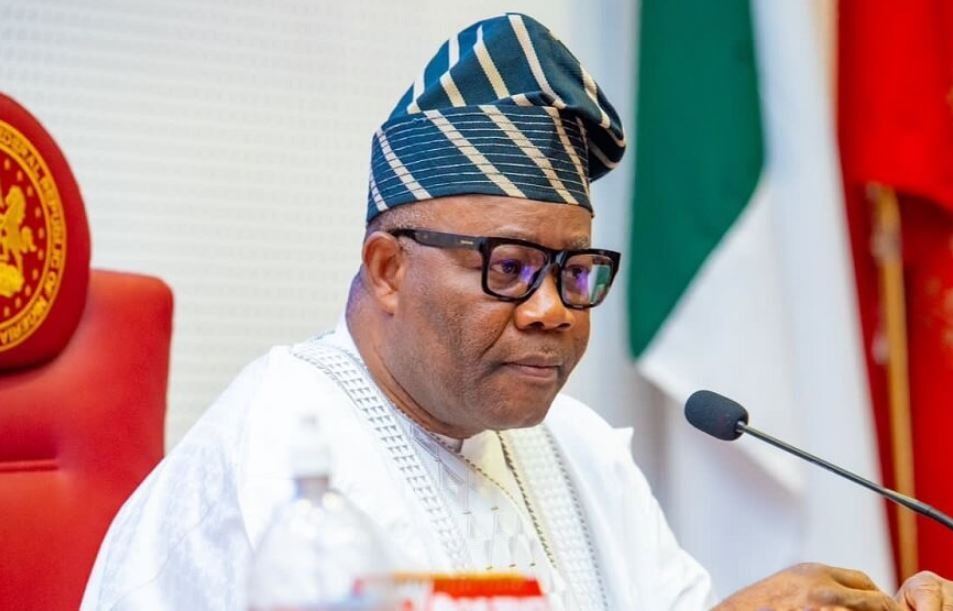The Senate in Nigeria is a key part of the country’s government, known as the Red Chamber. It has 109 members who represent different areas.
The President of the Senate leads this group and plays an integral part in making laws and checking the government’s actions.
This position has been held by different leaders since 1960, each contributing to Nigeria’s democracy. The Senate addresses important national issues, like security and health, and can impeach high officials if needed.
READ ALSO: Complete List Of Current Senators Representing Jigawa State
List of Senate Presidents Of Nigeria From1960 Till Date
| Name | Term of Office | Political Party |
|---|---|---|
| Nnamdi Azikiwe | January 1, 1960 - October 1, 1960 | National Council of Nigeria and the Cameroons |
| Dennis Osadebay | October 1, 1960 - October 1, 1963 | National Council of Nigeria and the Cameroons |
| Nwafor Orizu | October 1, 1963 - January 15, 1966 | National Council of Nigeria and the Cameroons |
| Joseph Wayas | October 1, 1979 - December 31, 1983 | National Party of Nigeria |
| Iyorchia Ayu | December 5, 1992 - November 1993 | Social Democratic Party |
| Ameh Ebute | November 1993 - November 17, 1993 | Social Democratic Party |
| Evan Enwerem | June 3, 1999 - November 18, 1999 | People's Democratic Party |
| Chuba Okadigbo | November 18, 1999 - August 8, 2000 | People's Democratic Party |
| Anyim Pius Anyim | August 8, 2000 - June 3, 2003 | People's Democratic Party |
| Adolphus Wabara | June 3, 2003 - April 5, 2005 | People's Democratic Party |
| Ken Nnamani | April 5, 2005 - June 5, 2007 | People's Democratic Party |
| David Mark | June 5, 2007 - June 6, 2015 | People's Democratic Party |
| Bukola Saraki | June 9, 2015 - June 9, 2019 | All Progressives Congress (until 2018), then PDP |
| Ahmad Lawan | June 11, 2019 - June 13, 2023 | All Progressives Congress |
| Godswill Akpabio | June 13, 2023 - Present | All Progressives Congress |
Who Was The First Senate President Of Nigeria?

Nnamdi Azikiwe, born on November 16, 1904, in Zungeru, Nigeria, was Nigeria’s first Senate President. He held this position from January 1, 1960, until October 1, 1960.
Azikiwe was one of the most important political figures in Nigeria’s history and played a big part in the country’s journey to independence from British rule.
Azikiwe studied at notable schools, including the University of Pennsylvania in the United States, where he earned a degree in political science.
He became involved in Nigerian politics early on and was known for his strong support for Nigerian self-rule. In 1944, he founded the National Council of Nigeria and the Cameroons (NCNC), a political party that pushed for Nigerian independence.
He became the first president of the NCNC. During his time as Senate President, Azikiwe focused on promoting peace and unity among Nigeria’s many different ethnic groups.
Although his time as Senate President was short. On October 1, 1960, when Nigeria officially became a republic and moved to a parliamentary system of government, Azikiwe stepped down from the Senate Presidency. After this, Azikiwe’s political career continued to grow.
He became Nigeria’s first Governor-General in 1960 and later, in 1963, became the first President of the country, serving until January 15, 1966, when a military coup ended his time in office. Sadly, he passed away on May 11, 1996, leaving a lasting legacy as one of Nigeria’s most respected leaders.
READ ALSO: Complete List Of Current Senators Representing Lagos State
Who Is The Current Senate President?

Godswill Akpabio is the current President of the Senate of Nigeria. He was born on December 9, 1962, in Ukana, Akwa Ibom State.
Akpabio took office as Senate President on June 13, 2023, and is a member of the All Progressives Congress (APC). Akpabio studied law at the University of Calabar and later earned a Master’s degree in Law from the University of Lagos.
His career before entering politics saw him working as a lawyer. He also served as the Governor of Akwa Ibom State from 2007 to 2015.
He was focused on building infrastructure and launching social programs that improved education and healthcare in the state.
His administration completed many projects, such as roads, schools, and hospitals, which gained him recognition for his commitment to development.
In 2015, after finishing his term as governor, Akpabio was elected to the Nigerian Senate, representing Akwa Ibom North-West.
He became an influential senator, serving as the Minority Leader. In 2018, he switched to the APC, the ruling party in Nigeria, which helped him rise to higher political positions.
Akpabio plays a major part in guiding the legislative process. He is responsible for leading Senate sessions, maintaining order during discussions, and representing the Senate in official matters.
Although Akpabio has faced criticism and controversies about his leadership, he continues to be an important figure in Nigerian politics.
His position as Senate President places him second in line for presidential succession after the Vice President.
Aside from his political career, Akpabio is known for his philanthropic work, which supports youth empowerment and education in Nigeria.
Who Is The Current Deputy Senate President?

Barau Jibrin, born on March 22, 1958, in Kano State, is the current Deputy President of the Nigerian Senate. He took office on June 13, 2023.
Jibrin is a member of the All Progressives Congress (APC) and represents the Kano North Senatorial District. Jibrin earned a Bachelor’s degree in Business Administration from Ahmadu Bello University in Zaria.
However, his political career began in the early 2000s, and he was first elected to the Nigerian Senate in 2015. During his first term, Jibrin served on several important committees, focusing on finance and national security.
He was re-elected for a second term in 2019. Throughout his time in the Senate, Jibrin advocated for different issues that affected both his constituency and Nigeria as a whole.
His main focus areas include education, healthcare, and infrastructure development. As the Deputy Senate President, he plays an important part in legislative processes and presides over Senate sessions when the Senate President is not available. In addition to his legislative work, Barau Jibrin is also involved in community development projects in Kano State.


Naija we hail thee